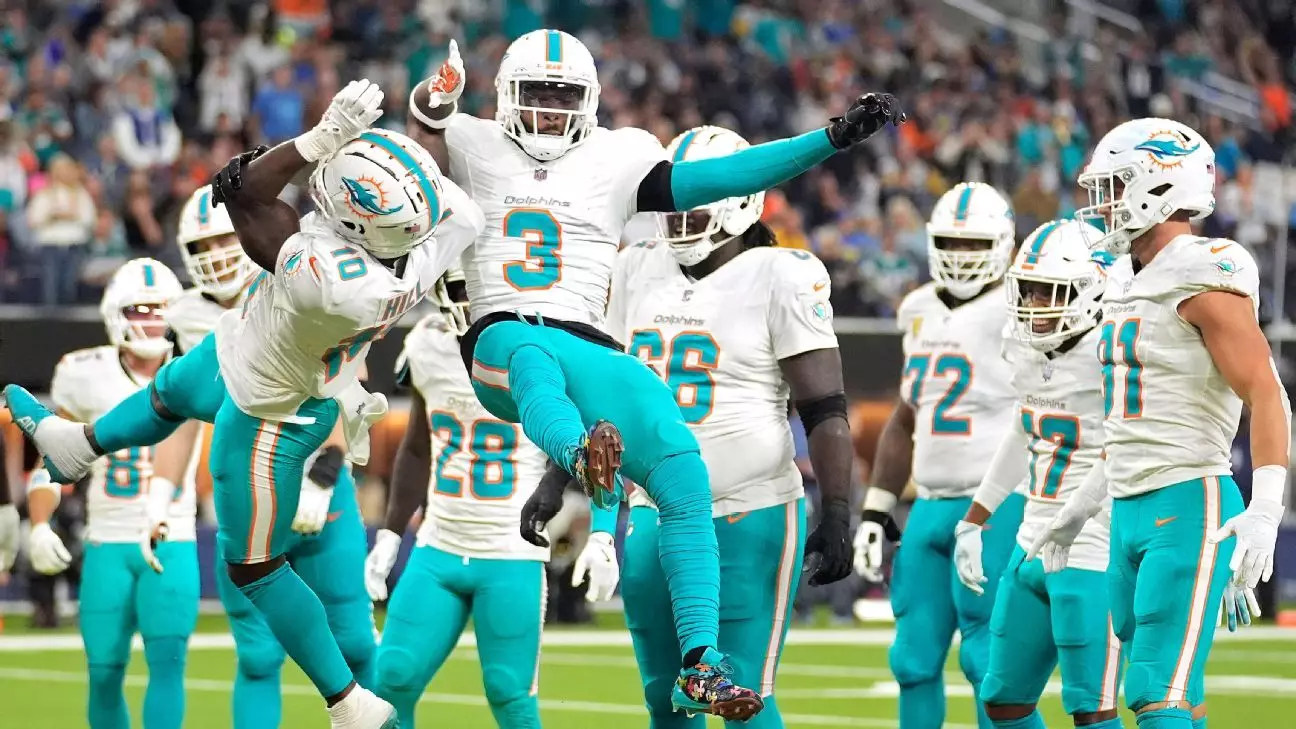In a surprising turn of events, the Miami Dolphins officially parted ways with wide receiver Odell Beckham Jr. this past Friday, marking the end of a brief and tumultuous chapter just weeks before the regular season concludes. The decision was described as mutual, following Beckham’s absence from practice due to “personal reasons.” This release not only raises eyebrows but also encapsulates the tumultuous nature of the Dolphins’ season, underpinned by a series of unmet expectations and injuries.
Beckham’s contract with the Dolphins, a one-year deal worth $3 million that could escalate to $8.25 million through incentives, was initially perceived as a strategic move to bolster Miami’s receiving corps. However, complications arose early in the process. The wide receiver underwent knee surgery before the season began and subsequently began the campaign on the physically unable to perform (PUP) list. Despite the Dolphins being aware of Beckham’s precarious physical condition, they proceeded with the signing, a choice that may now seem hasty in retrospect.
His gradual return to form saw him make his practice debut in early October, culminating in his first game action against the New England Patriots during Week 5. However, the results were less than impressive: over the course of nine games, Beckham managed just nine receptions totaling 55 yards. This performance fell short of expectations for a player who was slated to be a primary receiving threat alongside stars Tyreek Hill and Jaylen Waddle.
The Dolphins’ offense saw an unexpected twist as tight end Jonnu Smith emerged as a significant target. Beckham’s envisioned role as the number three receiver was usurped, illustrating the shifting dynamics within Miami’s passing game. This newfound reliance on Smith not only diminished Beckham’s impact but also left fans wondering about the effectiveness of the team’s strategy.
The team’s struggles were compounded by inconsistent quarterback play, notably with Tua Tagovailoa missing four games due to a concussion. This instability hindered any chance of the Dolphins establishing a cohesive offensive identity, contributing to the team’s lackluster 2-6 start. While Miami has rebounded slightly, winning four of its last five outings, they now find themselves with a 6-7 record, putting them in a precarious position regarding their playoff aspirations.
Beckham’s exit serves as a stark reminder of the unpredictability of NFL careers and team dynamics. The Dolphins, once viewed as a playoff contender, must reevaluate their strategies moving forward. With the postseason rapidly approaching and qualification increasingly improbable without outside help, the organization faces pressing questions about depth, player acquisitions, and injury management.
As Miami navigates the remainder of the season, the decision to release Beckham may ultimately be viewed as a necessary step toward finding stability and redefining their future direction. In a league defined by change, the Dolphins have an opportunity—albeit a challenging one—to regroup and recalibrate for years to come.


Leave a Reply